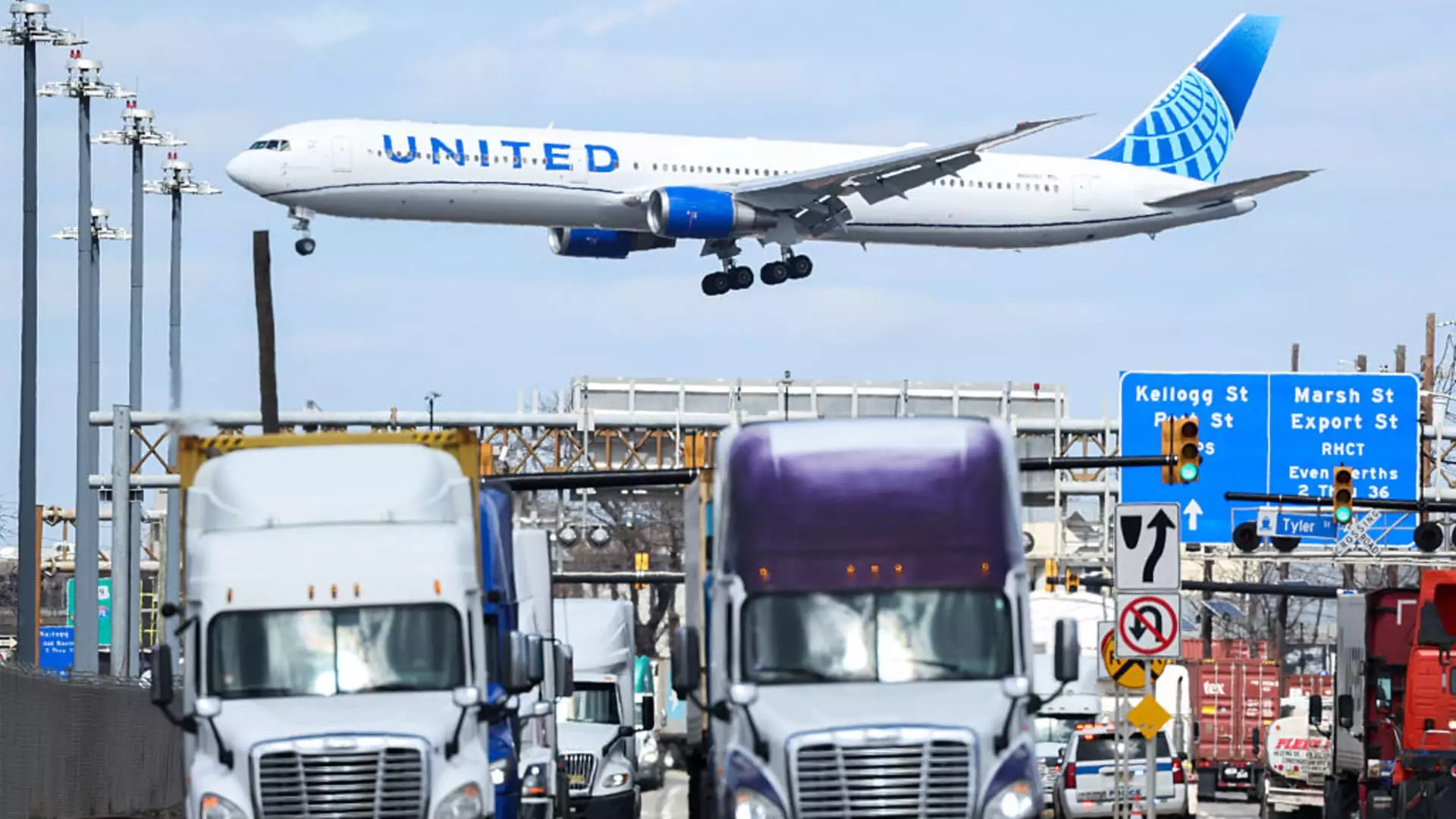United Airlines has boldly chosen to maintain its optimistic full-year financial forecast amidst a backdrop of economic uncertainty. On the surface, this feels like a defiant stand against the growing specter of a potential recession. In announcing both a primary forecast and a contingency plan, the airline seems to acknowledge a clear truth: the economy is an unpredictable beast. By iterating that their forecasts can either affirm a solid return of earnings between $11.50 and $13.50 per share or dip in dire scenarios to a modest range of $7 to $9 per share, they signal to the market their understanding of current dynamics while also demonstrating confidence in their operational strategies.
This dual-focus approach is particularly interesting given that economic predictions are fraught with speculation—especially when it seems political instability and trade tensions loom like threatening clouds on the horizon. It begs the question: Is it prudent to hold steadfast to a bullish outlook during such tumultuous times, or is it a gamble that could leave the airline wingless?
Adapting to Demand: A Smart Strategy
As the airline industry grapples with the hangover from the pandemic, United has made an astute decision to adjust its capacity. By cutting domestic flight volumes by about 4%, the company has signaled that it is not blindly optimistic; rather, it’s acutely aware of shifting consumer behaviors. While domestic travel demand may be waning, Don’t overlook the silver lining: international bookings and premium-cabin travel are witnessing a surge. This insight is paramount. It underscores a shifting demographic of consumers willing to spend more for elevated experiences, and United Airlines appears determined to capitalize on this growing trend.
Delta Air Lines’ similar strategy further validates this adaptive approach. The sign of a robust competitor pulling back demonstrates a collective industry shift toward a more cautious, yet opportunistic posture in the face of economic uncertainty. Therefore, rather than simply bracing for impact, United’s decision to streamline its operations while focusing on lucrative routes shows that it is positioned to thrive, regardless of whether the economic chatter turns volatile.
Profitability Amidst Adversity: Unpacking the Numbers
Despite turbulent conditions, the financial results for United Airlines paint a promising picture. Transitioning from a loss of $124 million the previous year to a profit of $387 million in the first quarter is no small feat. It demonstrates an inherent strength within the company’s operational model. Achieving adjusted earnings that beat forecasts doesn’t just mark a momentary success—it speaks to a potent resilience built into the fabric of United’s multi-year plans.
The numbers tell a compelling story: while domestic unit revenue dipped by 3.9%, international routes experienced over a 5% revenue increase. This contrasted data is crucial for stakeholders seeking reassurance during tough times. Notably, premium cabin bookings surged 17% from last year. This is telling; it indicates that even if everyday consumers tighten their grip on discretionary spending, there remains a segment of the market unphased by broader economic pressures—wealthy travelers seeking comfort and exclusive experiences. Their willingness to pay more can provide United Airlines with the financial cushion it needs if the domestic side falters.
Should We Fear Economic Fluctuations? Navigating External Pressures
When looking at United’s actions, it’s hard to dismiss the influence of larger economic currents, notably those stemming from political tensions and inflationary pressures. Yet, United Airlines appears undeterred. Their approach resonates with center-right wing liberalism ideology, which emphasizes adaptability and pragmatism in the face of uncertainty. A clear manifestation of this is CEO Scott Kirby’s demeanor, focusing not on fears of recession but instead on how they can expand their margins further in challenging times.
Understanding that economic downturn shouldn’t equate to despair, United Airlines is making strategic choices that reflect a robust understanding of market variables. This galvanized vision could very well propel the airline to solidify its leadership position, thereby redefining its narrative from mere survival to strategic ascension, even against a backdrop of recession.
In the end, the airline industry is notoriously volatile, and to navigate it successfully, one must embrace both caution and opportunity. United Airlines seems equipped to do just that, even amidst the swirling uncertainties the next economic quarter may bring.


Leave a Reply